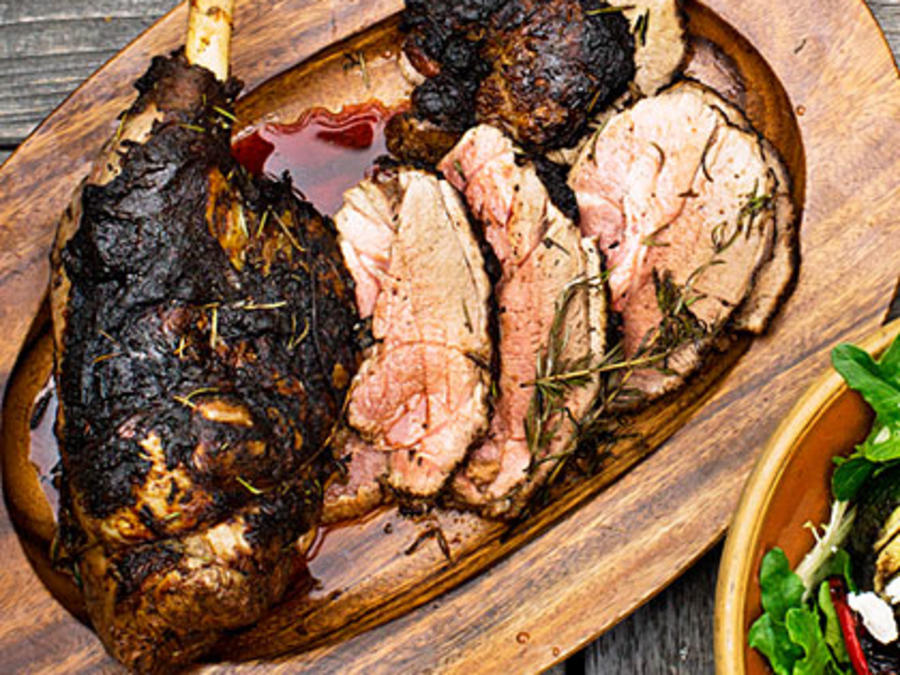Rosemary Grilled Leg of Lamb
5.0
(2)
Your folders
Your folders
Prep Time: 2 hours, 45 minutes
Total: 2 hours, 45 minutes
Author : Ben Ford

Ingredients
Export 11 ingredients for grocery delivery
Instructions
Step 1
Combine oil and all seasonings except for rosemary sprigs in a shallow pan. Add lamb and turn to coat inside and out. Cover and chill 24 hours, turning occasionally. Let lamb sit at room temperature 1 hour before grilling. Brush off excess marinade. Tie with kitchen twine to make a compact roast.
Step 2
Meanwhile, heat a grill to medium (350° to 400°) with burner turned off (for gas) or coals pushed to half of firegrate (for charcoal) to make an indirect heat area. Or light an indirect charcoal-and-wood fire in a Cowboy Cauldron (see "Cooking in a Cauldron," below).
Step 3
Grill lamb over direct heat, turning as needed, until browned all over, 10 minutes. Set lamb on a V-shaped rack in a roasting pan. Set pan over indirect-heat area (on Cauldron, lift rack and put pan down on firegrate, then replace rack--it helps retain heat). Top meat with rosemary sprigs. Stoke the fire (see "Cooking in a Cauldron"); for charcoal, as you cook, add 6 to 8 briquets every 30 minutes. Cover charcoal or gas grill.
Step 4
Roast lamb, rotating meat in pan every 20 to 30 minutes so each part is exposed to heat, until lamb reaches 140° in thickest part, 1 1/2 to 2 1/2 hours; rosemary may fall off. Let lamb rest on a board 15 minutes. Remove twine and carve.
Step 5
Cooking in a Cauldron
Step 6
Part firepit, part cooking tool, the Cowboy Cauldron (made in Utah) works as a grill, rotisserie, and more. Getting the hang of it takes practice, though. Ford's method: Ignite charcoal in a chimney, dump out onto firegrate, then crisscross 4 split oak logs on top. When logs are ashy, spread over half the grate to create direct and indirect cooking areas. Sear meat over direct heat area, then set in a roasting pan next to the fire. Turn the meat and stoke the fire with 1 or 2 logs every hour or so. Urban Cowboy (shown, 30 in.): $1,300; cowboycauldron.com.
Step 7
*Ask a butcher to remove the hip and leg bones from the wide end but leave the shank bone, which is useful as a handle for turning.